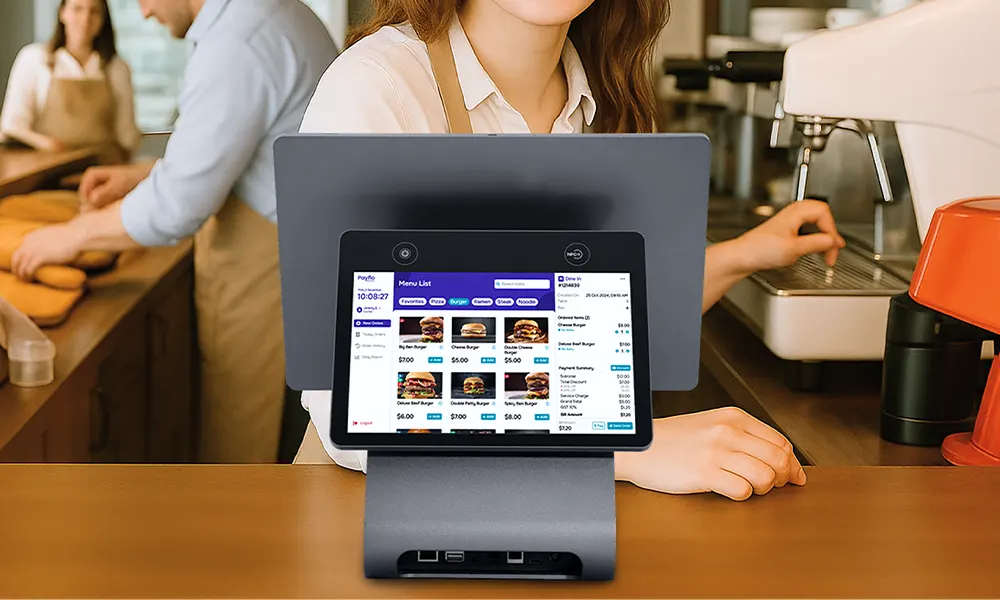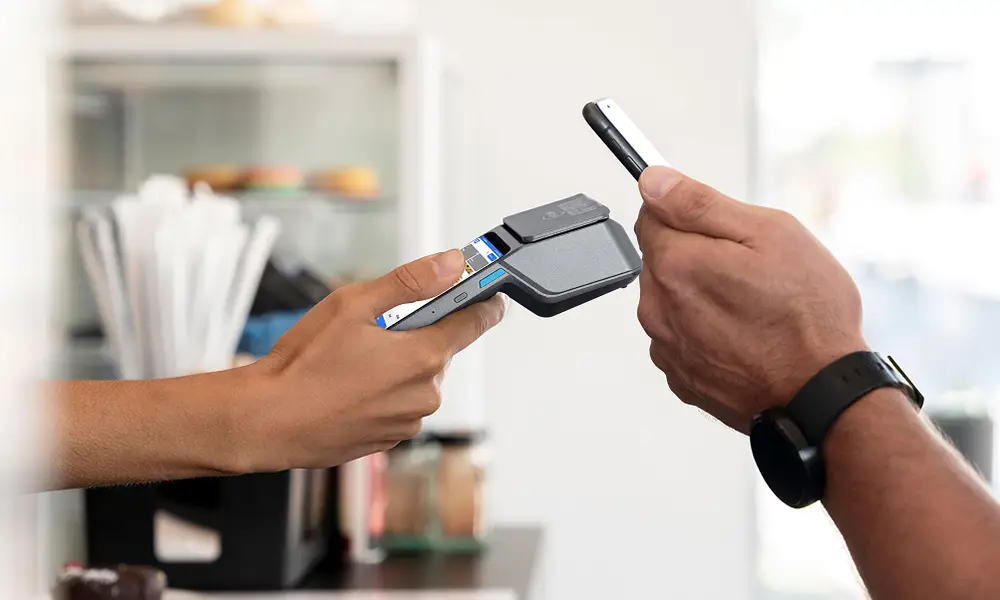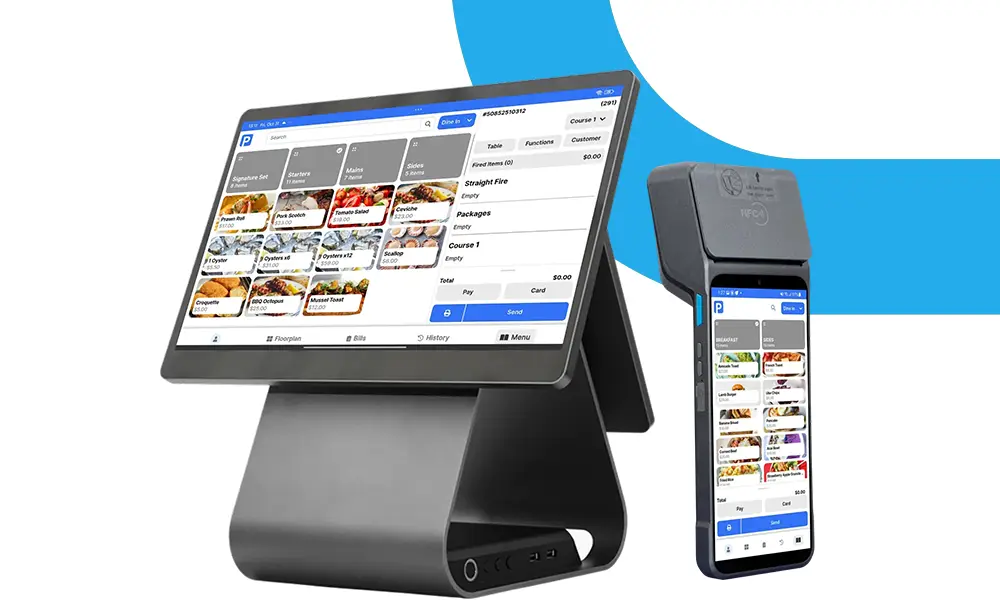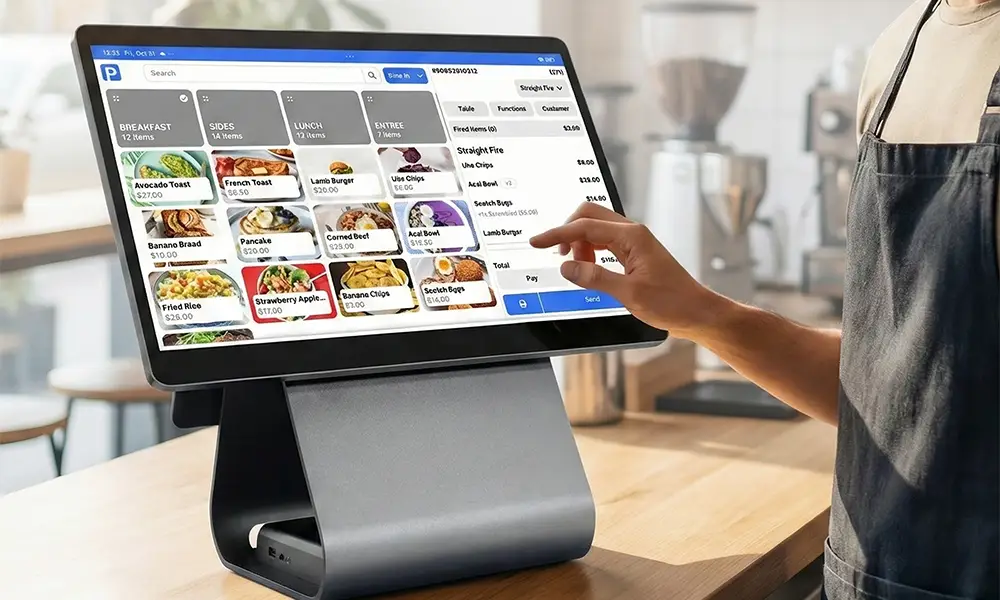Running a small business in Australia comes with its challenges, from managing cash flow to keeping track of inventory and delivering great customer service. One of the most crucial elements to ensure your business runs smoothly is having an efficient retail POS system in place.
In 2025, businesses are transitioning away from traditional cash registers to more modern, versatile POS systems in Australia. A retail POS system is not just a tool for processing sales; it’s a comprehensive solution for managing your store, enhancing customer service, tracking inventory, and making data-driven decisions.
In this guide, we’ll break down why a retail POS system is essential for small business success in Australia, how it can benefit your business operations, and the factors you should consider when choosing the right system for your needs.
If you’re ready to explore POS systems, Payflo can help you find the best solution tailored to your business.
What is a Retail POS System?
A retail POS system (Point of Sale) is a combination of hardware and software used to complete sales transactions. While the traditional POS system simply recorded a sale, modern systems do much more; they help manage inventory, track sales, generate reports, and even interact with customers through loyalty programs.
For small businesses in Australia, a retail POS system is vital for streamlining operations, improving efficiency, and ensuring that the business runs without unnecessary delays or errors.
How Retail POS Systems Benefit Small Businesses
Retail POS systems offer small businesses a streamlined solution for managing sales, inventory, and customer data, boosting overall efficiency and profitability.
1. Simplified Sales Process
The primary function of a retail POS system is to process transactions quickly and accurately. Whether you’re accepting cash, credit cards, or mobile payments, your POS system consolidates all payment methods into one place.
With a POS system in Australia, you eliminate manual entry of sales data, which not only speeds up the checkout process but also reduces the risk of errors. As a result, both you and your customers benefit from a seamless transaction experience.
2. Real-Time Inventory Tracking
Inventory management is a common challenge for small business owners, especially in retail. With a retail POS system, your inventory is updated automatically every time a sale is made. This means that your stock levels are always up to date, and you can track which products are selling quickly and which ones are slow movers.
Many POS systems in Australia also allow for automatic reordering, ensuring that you never run out of stock on your best-selling items. By streamlining inventory management, you can focus on growing your business rather than spending time on manual stock tracking.
3. Detailed Reporting and Analytics
A retail POS system provides valuable insights into your business performance through detailed reports and analytics. Sales data, inventory levels, customer buying patterns, and even employee performance can be tracked and analysed with just a few clicks.
Having access to real-time reports allows you to make informed decisions. For example, you can quickly identify your most profitable products, track sales trends, or discover underperforming areas of your store. This data-driven approach can significantly improve your business strategy, whether it’s adjusting pricing, stocking decisions, or marketing campaigns.
4. Improved Customer Service
Customer satisfaction is a key component of any small business’s success. A retail POS system can help enhance customer service in several ways:
- Faster checkouts: With streamlined transactions, your staff can serve customers faster, reducing wait times at the checkout counter.
- Loyalty programs: Many POS systems allow you to set up customer loyalty programs, offering rewards or discounts to repeat customers.
- Personalised experience: A POS system that stores customer data enables you to offer a more tailored shopping experience by recognising frequent customers and suggesting products based on past purchases.
Improved customer service leads to higher customer retention, which is essential for long-term success.
5. Integration with Other Business Tools
A modern retail POS system can integrate with a variety of other business tools, such as accounting software, payroll systems, and e-commerce platforms. These integrations eliminate the need for manual data entry, saving you time and reducing the chance of errors.
For example, integrating your POS system in Australia with accounting software allows you to automatically update financial records after each transaction, streamlining your financial management process. Similarly, integrating with an online store can help synchronise inventory and customer data across both your physical and online stores.
6. Streamlined Employee Management
Employee management can be time-consuming, especially when you need to track hours, performance, and scheduling. A retail POS system can help manage staff by tracking hours worked, generating payroll reports, and even monitoring employee sales performance.
Additionally, POS systems often come with security features, such as employee login systems, to ensure that only authorised personnel can access sensitive data or make transactions. These tools help increase accountability and reduce potential losses from theft or mistakes.
Why Small Businesses in Australia Need a POS System
Australia’s retail environment is fast-paced and competitive. With consumer expectations rising and operational efficiency being more important than ever, a retail POS system can give your small business a significant advantage.
1. Enhance Operational Efficiency
From simplifying the checkout process to automating inventory updates and payroll management, a POS system Australia helps streamline day-to-day operations. The automation provided by a POS system saves your team valuable time, allowing them to focus on customer service and other high-priority tasks.
2. Stay Ahead of Competition
Small businesses are always looking for ways to stay ahead of competitors. A retail POS system not only helps you optimise operations but also provides valuable insights that can help you stay on top of market trends. With features such as real-time inventory tracking and detailed sales reports, you can adjust your strategies faster than your competitors.
3. Future-Proof Your Business
As technology continues to evolve, so does the demand for advanced retail solutions. A POS system ensures that your business is future-proof by offering scalable features. Whether you expand to multiple locations or integrate new business tools, a modern POS system can grow alongside your business.
What to Look for When Choosing a Retail POS System in Australia
When choosing a retail POS system in Australia, it’s essential to consider features like ease of use, integration capabilities, and scalability to ensure it meets your business needs.
1. Scalability
As your business grows, your POS system should be able to scale with it. Look for a system that can handle multiple locations or increased transaction volumes without compromising performance.
2. Ease of Use
A POS system should be intuitive and easy to use, even for new staff members. Choose a system that requires minimal training and offers customer support for any issues that may arise.
3. Integration Capabilities
Your POS system should be compatible with your other business tools, such as accounting software, online store platforms, and employee management systems. Seamless integration ensures that your data flows effortlessly between systems, improving efficiency.
4. Customer Support
Excellent customer support is essential when choosing a retail POS system. Ensure that the provider offers reliable support, whether it’s through phone, email, or live chat, and that help is available when you need it.
Conclusion: Unlock Your Small Business Potential with a Retail POS System
A retail POS system is no longer a luxury; it’s a necessity for small businesses in Australia looking to streamline operations, improve customer service, and make data-driven decisions. Whether you’re managing inventory, tracking sales, or improving customer relationships, a POS system can help you do it all more efficiently.
If you’re ready to take your business to the next level, Payflo is here to help you find the best POS system in Australia that fits your needs. We offer tailored solutions to help you optimise your retail operations and grow your business.
Contact Us to learn more about the best retail POS systems for your small business.
FAQ
1. What is a retail POS system?
A retail POS system is a combination of hardware and software used by businesses to complete sales transactions, manage inventory, and track customer data.
2. How does a POS system improve customer service?
A POS system improves customer service by speeding up the checkout process, managing customer data, and allowing businesses to offer loyalty programs and personalised experiences.
3. Can a retail POS system integrate with accounting software?
Yes, most retail POS systems can integrate with accounting software to automatically update financial records, saving time and reducing errors.
4. How much does a retail POS system cost in Australia?
The cost of a retail POS system in Australia can range from $50 to $200 per month, with additional costs for hardware and software upgrades.
5. What features should I look for in a retail POS system?
Look for a POS system that offers real-time inventory tracking, detailed reporting, customer management, and integration with other business tools to improve efficiency.


%201.svg)
%201.svg)





.png)
.png)
